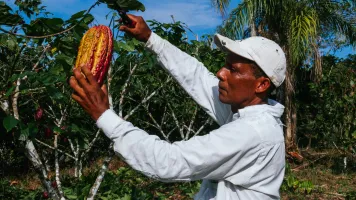The Food and Agriculture Organization (FAO) is the specialized agency of the United Nations that leads international efforts to defeat hunger.
Our goal is to achieve food security for all and make sure that people have regular access to enough high-quality food to lead active, healthy lives. With over 194 member states, FAO works in over 130 countries worldwide. We believe that everyone can play a part in ending hunger.
Priorities as a partner of the Global Partnership for Sustainable Development Data
FAO develops methods and standards for food and agriculture statistics, provides technical assistance services and disseminates data for global monitoring. Statistical activities at FAO include the development and implementation of methodologies and standards for data collection, validation, processing and analysis. FAO also plays a vital part in the global compilation, processing and dissemination of food and agriculture statistics, and provides essential statistical capacity development to member countries.
Statistical activities at FAO cover the areas of agriculture, forestry and fisheries, land and water resources and use, climate, environment, population, gender, nutrition, poverty, rural development, education and health as well as many others.
The Statistical Programme of Work provides a summary of all of the principal statistical activities at FAO, and a detailed description of all the individual statistical activities carried out by FAO Divisions active in the field of statistics. It presents the organization’s operational activities according to different statistical categories and domains.
FAO is the custodian UN agency for 21 indicators, which monitor 16 targets under six of the Sustainable Development Goals. It also contributes to monitoring four additional SDG indicators. As a custodian agency, FAO is responsible for collecting data from national sources, validating and harmonizing them, estimating regional and global aggregates and making them available for international reporting. FAO is also responsible for leading the methodological development of the 21 indicators and for providing coordinated technical assistance to countries with the objective of enabling them to produce their own data in the long run.





